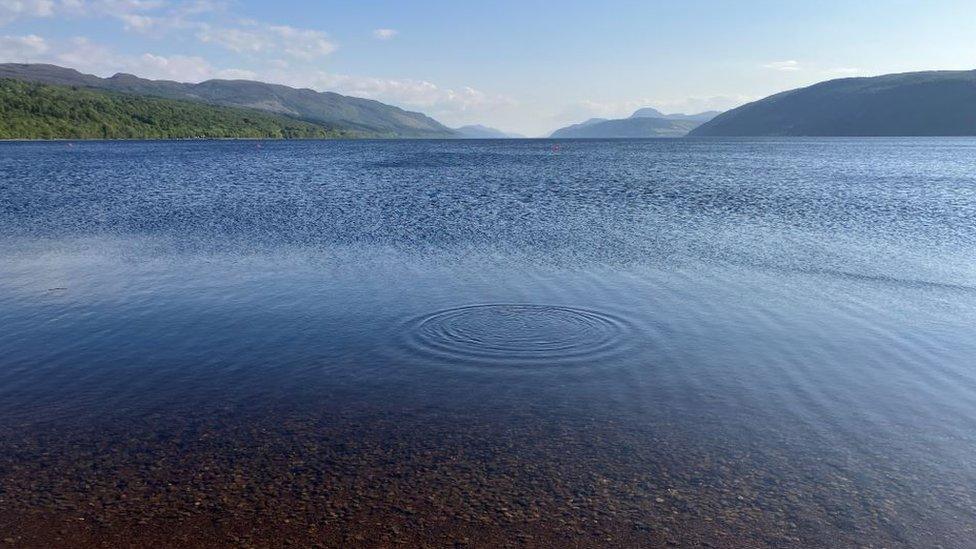Highland private water supplies dry up in heatwave
- Published
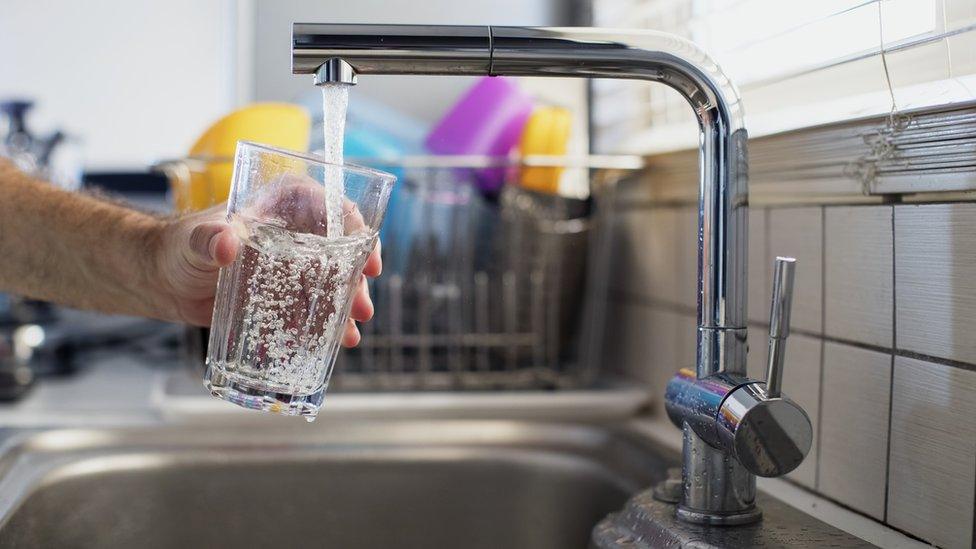
Highland Council says some of the region's private water supplies have dried up due to a lack of rainfall.
About 40,000 people in the Highland area rely on a private supply, and are not connected to mains water.
The local authority does not have responsibility for the supplies - of which there are more than 2,700 - but has been monitoring the situation.
It said bottled water was available through a Scottish government-funded scheme for the worst affected.
People have been asked to contact Highland Council's environmental health for further advice.
The Met Office has confirmed Scotland is officially experiencing a heatwave after an extended period of hot weather. The conditions follow low snowfall levels in winter and low rainfall in spring.
The Highland region has been one of the worst affected, with the Scottish Environment Protection Agency (Sepa) warning of significant water scarcity around Loch Maree in Wester Ross.
Sepa has a moderate scarcity warning in place for the Ness area, which includes Loch Ness and River Ness.
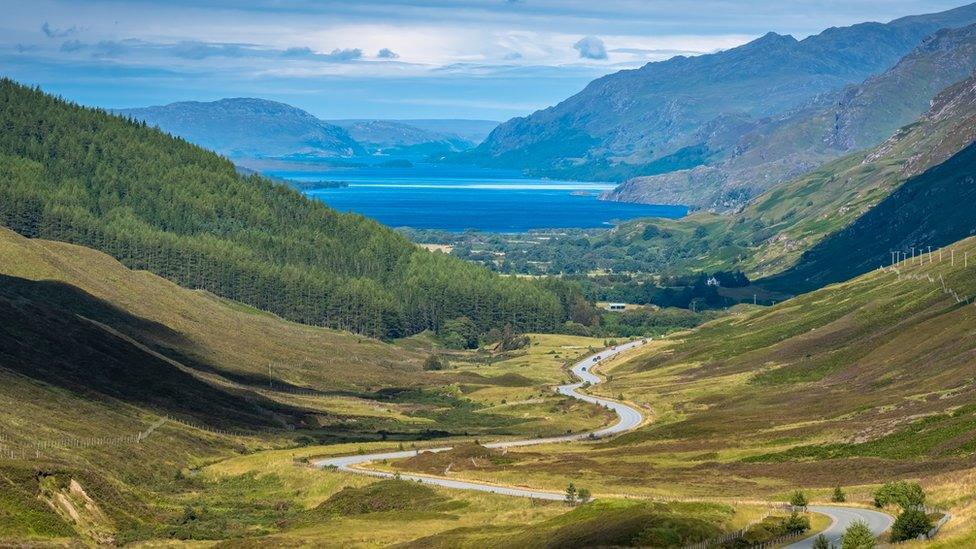
Sepa has issued a significant water scarcity warning for the Loch Maree area in the Highlands
Highland Council's senior environmental health officer Patricia Sheldon said: "In recent days, we have received several reports of private water supply drying up or their source of water is exceptionally low.
"We are offering support to these users and would advise everyone to check their water supplies to try and conserve the use of water as best they can."
The council said bottled water was available to domestic households where their private water supply had run dry and where users were unable to make alternative arrangements.
Anyone with concerns has been asked to email envhealth@highland.gov.uk or contact environmental health on 01349 886603.
Scottish Water has urged its customers across Scotland to use water as efficiently as possible in homes and gardens to help conserve supplies.
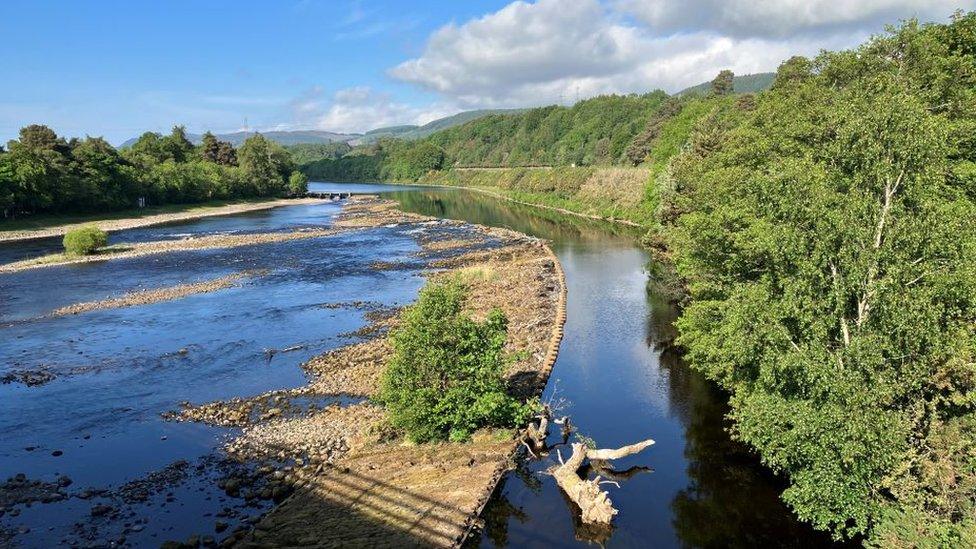
Low water levels have been seen on the River Ness in the Highlands
It has asked people to take shorter showers, turn taps off when brushing teeth, using washing machines and dishwashers only when fully loaded and using a bucket and sponge rather than a hose to wash cars.
The company said the public water supply was resilient, but added that here had been an increase in water use by customers with domestic demand up by 20%.
It said the amount of water it put into Scotland's network been increased by 150 million litres per day in the past two weeks - the equivalent of 75 Olympic-sized swimming pools or 1.8 million baths each day.
Scottish Water said average reservoir levels across Scotland are down 3% from last week to 77%. The average for this time of year is 87% and this time last year levels were at 87%.
Related topics
- Published13 June 2023
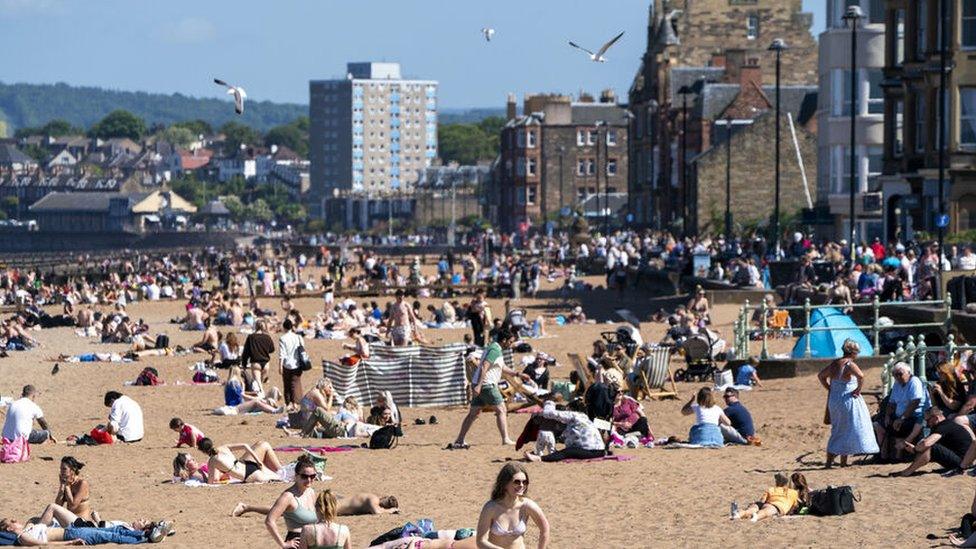
- Published10 June 2023
